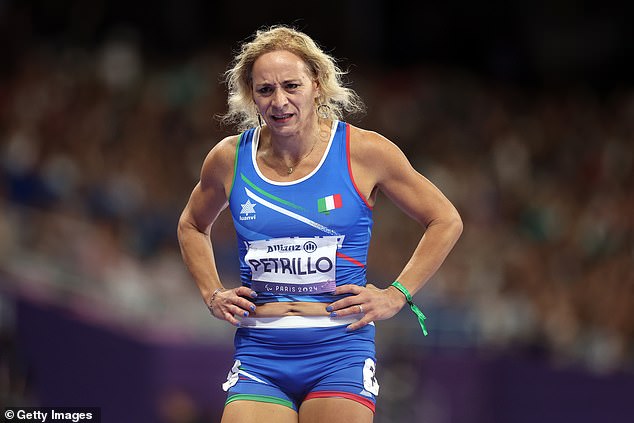On a warm autumn morning in Paris, a group of women gathered for the occasion to which they had dedicated three years of enormously challenging lives.
A Cuban who has become an icon of parasport, an Iranian who has become an emblem of freedom for millions of people in her country and one of the most beloved athletes in Mexico were among those competing in the 400-meter women’s qualifiers for visually impaired people at the Paralympic Games.
It was in the last of four qualifying heats that a competitor did warm-up exercises whose presence was an insult to these women, to their years of effort against enormous obstacles and to the integrity of the Paralympic Games.
Italian athlete Valentina Petrillo, 51, who won 11 men’s national titles, fathered two children and was still competing as a man at 45, claimed her right to compete in the women’s category out of “happiness.”
As a man, Petrillo’s level was mediocre and did not come close to the male minimum required to qualify for the Paralympic Games. As a recategorised woman, she has become a serial winner, setting six Italian Paralympic records, reaching a European final and winning two international medals.
Italian Valentina Petrillo, a father of two who at 45 was still competing as a man, has claimed her right to compete in the women’s category out of “happiness.”
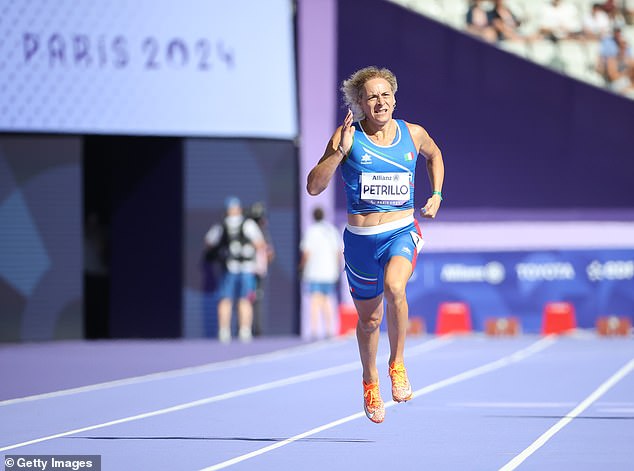
Petrillo was still competing as a man at the age of 45, but was allowed to race in the Paralympic Games.
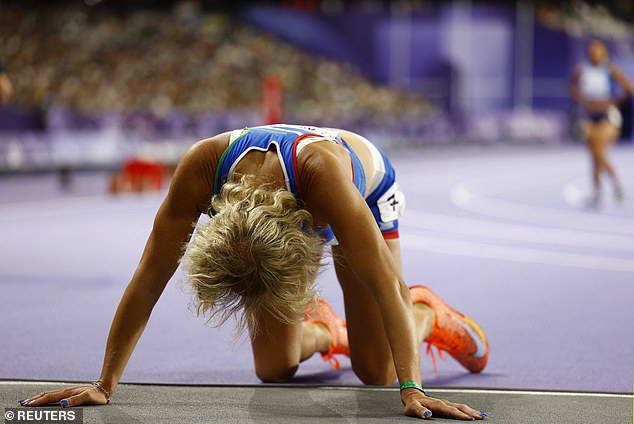
Last year, the former computer scientist won bronze in the 200 metres at the World Para Athletics Championships in Paris.
Last year, the former computer scientist took bronze in the 200m at the World Para Athletics Championships in Paris, beating Morocco’s Fatima Ezzahra El Idrissi to take her place on the podium. Petrillo was 18 years older than any other athlete in the discipline.
The image of Petrillo defeating the diminutive Chinese athlete Shen Yaqin, 17 years her junior, in her heat was truly a testament to a Paralympic sport that has lost all touch with reality.
Petrillo walked down the outside lane of the track like a good club runner and although she was caught by a very competent Venezuelan, who won the heat, her Chinese opponent, who lacked Petrillo’s musculature, looked like an orphan.
The sense of injustice was exacerbated by the fact that Petrillo, who developed the degenerative eye disease Stargardt disease as a child, was running without a guide, while her two opponents needed one.
Petrillo would not have been allowed to compete at the Olympics because governing body World Athletics, which has been debating how to treat transgender athletes while maintaining a fair playing field for women, has acted on multiple scientific studies in restricting international women’s competition exclusively to those born female.
But World Para Athletics’ equivalent organisation says transgender athletes simply need to prove they are “women recognised by law” and provide evidence their testosterone level has been “below 10 nanomoles per litre for at least 12 months”.
The upper limit of the female standard range is 2.4. Petrillo has been receiving testosterone-lowering treatment. You only need to have seen some of the British Paralympic competitors here this week up close to see that behind the inclusivity narrative of these Games are athletes desperate to succeed, who are devastated when they don’t.
Kadeena Cox was still lying on the velodrome floor, crying, a quarter of an hour after she crashed on the first turn of her time trial. Badminton player Dan Bethell could barely find words after losing his gold medal match.
Welcoming a rider who just five years ago would have described himself as a “father of two” is a laugh in the face of these people. It is nothing short of a disgrace.
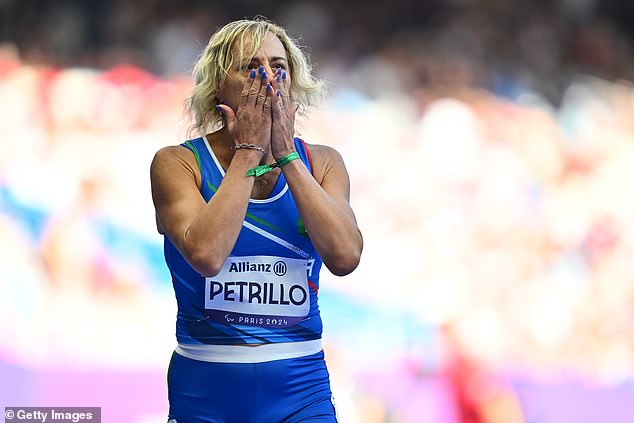
World Para Athletics says transgender athletes only need to prove they are “women recognized by law” and provide evidence that their testosterone level has been “below 10 nanomoles per liter for at least 12 months.”
In a documentary aired this summer, Petrillo, who is biologically male, admitted that women had a right to feel “amazed, confused and doubtful” about her. But having come into last night’s semi-final sixth fastest, three seconds ahead of Shen, she was full of entitlement.
Restricting interviews to the Paralympics’ in-house streaming service, she said: “I don’t want to hear about discrimination or prejudice against trans people. Let’s remember this day as a historic day. Now I’ve done it, so we can all do it if I’ve done it. I’ve done my little bit. We won’t stop.”
And that is precisely what the women competing alongside Petrillo fear most, as they flatly avoided contact with her on Monday morning.
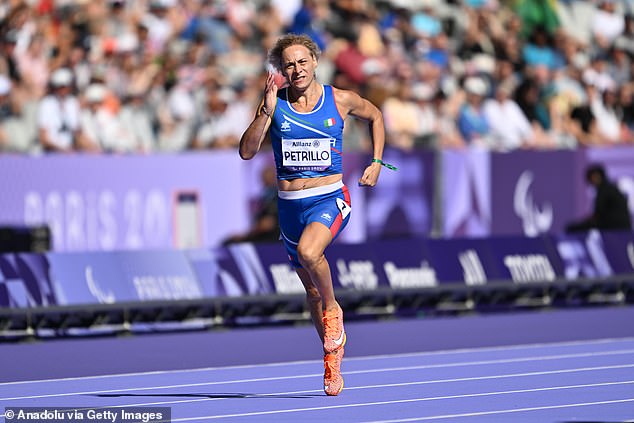
In a documentary aired this summer, Petrillo, who is biologically male, admitted that women had a right to feel “astonishment, confusion and doubt” about their
Institutional cowardice has opened the door to elite women’s sport to a person who should not be there. Who knows how many more will follow her example?
After finishing third in her semi-final on Monday night and failing to make it to Tuesday’s final, she sobbed in the mixed athlete-media area. “They are stronger than me,” she said. “But I hope my son is proud of me. This is important to me because he has a trans father. He doesn’t have the father everyone dreams of. But I hope he is proud of me.”
It was a very different tone from the triumphant one she adopted after advancing to the semi-final as the sixth fastest runner, three seconds ahead of Shen. “From today on, I don’t want to hear any more about discrimination or prejudice towards trans people,” she said then. “I have made my small contribution. We are not going to stop.”
This is precisely what worries many of the women competing alongside Petrillo, who will compete again on Friday in the 200 metres.

